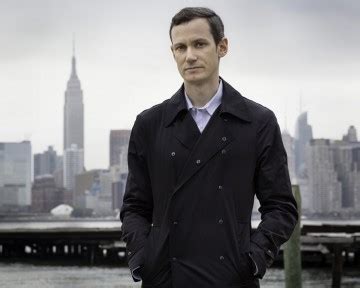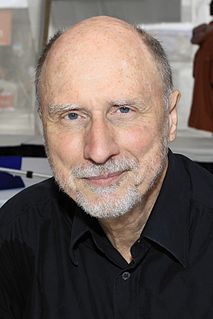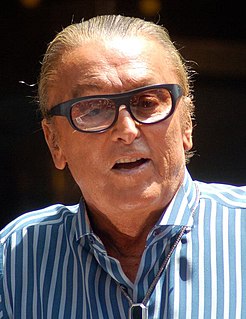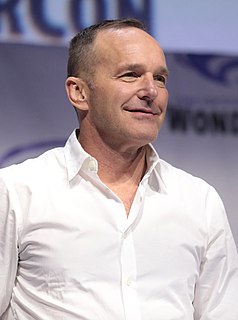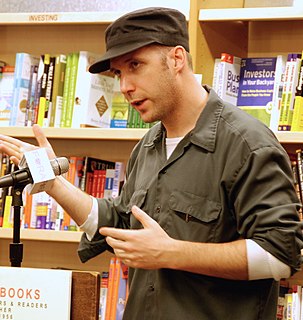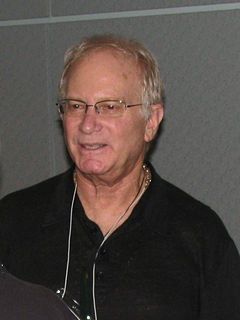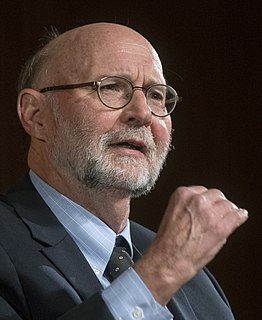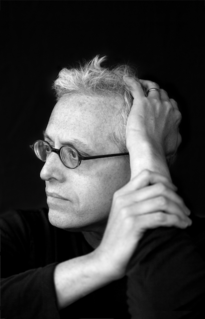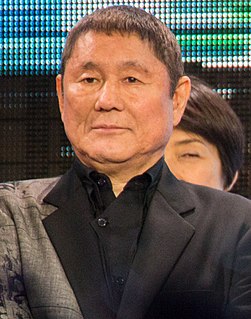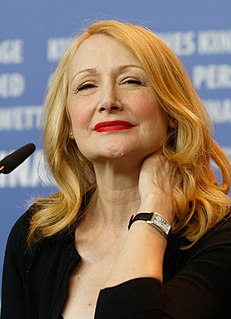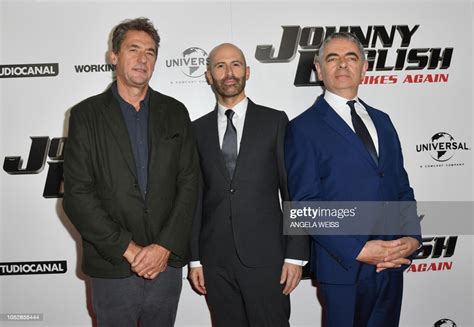Top 403 Screenplay Quotes & Sayings - Page 7
Explore popular Screenplay quotes.
Last updated on December 11, 2024.
Spike optioned my first book, 'Now the Hell Will Start,' and he trusted me to write the screenplay, too. That was an awesome learning experience - I grew up watching Spike's movies, and here he was giving me handwritten notes about structure and dialogue. His feedback taught me so much about how to craft a cinematic narrative.
I prefer reading novels. Short stories are too much like daggers. And now that I'm done with my collection I'm more interested in different forms of writing and other kinds of narrative art. I'm working on a screenplay. But when I was working on Eileen, I definitely felt like I was taking a piss. Like, here I am, typing on my computer, writing the "novel." It wasn't that it was insincere, but there was a kind of farcical feeling I had when I was writing.
I love babies. I think they are beautiful in all sorts of different ways. I try to pick up and hold a baby every day, if possible, because it nourishes me. It feeds my soul. Babies are drawn to me. And I think it's because they see me as one of them. But ... cooler and with my life put together a little bit more. If a baby were president, there would be no taxes. There would be no war. There would be no ... government, and ... things could get terrible. And actually probably it would be a better screenplay idea than a serious suggestion.
My mother always helped me because she was kind of a research fanatic. When she would write a screenplay, there would be so much research all over the walls. And so when I started working as an actress, I would do the same thing. She instilled in me a love of taking everything very seriously. It didn't matter what it was.
The graphic novel? I love comics and so, yes. I don't think we talked about that. We weren't influenced necessarily by graphic novels but we certainly, once the screenplay was done, we talked about the idea that you could continue, you could tell back story, you could do things in sort of a graphic novel world just because we kind of like that world.
[on the screenplay for "When Harry Met Sally"] It struck me that the movies had spent more than half a century saying, "They lived happily ever after" and the following quarter century warning that they'll be lucky to make it through the weekend. Possibly now we are now entering a third era in which the movies will be sounding a note of cautious optimism: You know, it just might work.
Natural writers will often try to force themselves into a form - novel, story, screenplay, or poem - that is not necessarily the appropriate form for the way they see the world... if, in fact, they are writing from the artist's impulse, which is a deep, inchoate vision of some sort of order behind the apparent chaos of life on planet earth, they'll be driven then to express that vision in the creation of the object - the art object.
By the time I was doing "Kill Bill," it was so much filled with prose that, you know, I start seeing why people write a screenplay and make it more like a blueprint, because basically I had written - in "Kill Bill," I had basically written a novel, and basically every day I was adapting my novel to the screen on the fly, you know, on my feet.
Henri-Georges Clouzot's cool, clammy, twisty 1955 thriller Diabolique is an almost perfect movie about a very nearly perfect murder, a film in which the artist's methods and the killers' are ideally matched, equal in cunning and in ruthlessness. The screenplay, adapted by Clouzot and three other writers from a novel by the crack French crime-fiction team of Pierre Boileau and Thomas Narcejac, is a fantastically elaborate piece of contrivance, but the scrupulous realism of the direction makes the unnatural tale somehow feel entirely likely.
I can pick up a screenplay and flip through the pages. If all I see is dialog, dialog, dialog, I won't even read it. I don't care how good the dialog is - it's a moving picture. It has to move all the time... It's not the stage. A movie audience doesn't have the patience to sit and learn a lesson. Their eyes need to be dazzled. The writer is the most important element in the entire film because if it ain't on the page it ain't going to be on the screen.
The way that I'm feeling the shift in movie industry is that women are allowed to be part of the development process. So I do feel like things are changing because I'm allowed to option books or write an original screenplay or direct. Those possibilities are really wide open. I think that males still struggle to write for females, which is totally fine because I don't think I could write a really impactful male role because that's not the life that I lived. So we'll just keep shouting and say we need more opportunities for not just women but people that are just different.
Most directors, I discovered, need to be convinced that the screenplay they're going to direct has something to do with them. And this is a tricky thing if you write screenplays where women have parts that are equal to or greater than the male part. And I thought, 'Why am I out there looking for directors?'—because you look at a list of directors, it's all boys. It certainly was when I started as a screenwriter. So I thought, 'I'm just gonna become a director and that'll make it easier.'
A 300pp novel can easily become a 200pp novel by printing with smaller type; a 100pp screenplay can potentially become a film of between 60-140 minutes in length; a 200pp stage play could be performed in anything from 30 minutes to four hours. For all these media, the script length is agnostic to the final work.
I've quit writing screenplay [adaptations]. It's too much work. I don't look at writing a novel as work, because I only have to please myself. I have a good time sitting here by myself, thinking up situations and characters, getting them to talk - it's so satisfying. But screenwriting's different. You might think you're writing for yourself, but there are too many other people to please.
Forget about Republican or Democrat - what about the kid in the middle of the country who wants to play the drums, the kid who wants to learn how to write a book, or the kid who wants to write a screenplay? We need to give them access to the arts. It's not fair that if you live in a different part of the country, you don't have the chance to learn. And it's not fair that if you don't have as much money, you don't have the chance to learn.
The number one metaphor I have in my mind for writing a screenplay is that...you're trying to climb a mountain blindfolded. And the funny thing about that is, you think, 'Okay, that's hard because you're climbing up a rock face, and you don't know where you're going, and you don't know where the top is, you can't see what's below you...' But actually the hardest part about climbing a mountain blindfolded is just finding the mountain.
Still, these days when I daydream about the movie, I don't think about the big picture. It's more fun for me to think of little things that would add to the movie. I like to think the powers that be would let me amuse myself with some small things in order to shut me up while they re-write the screenplay to turn Kvothe into a lesbian, shape-changing unicorn.
I try to discover the character's primary motivation. In a screenplay, you can make up a hundred different variables of a character. Is he there for love or respect, or is he there out of fear? What's he doing? Why is he doing it? Then I can build on the intricacies. Does he pick his fingernails? Does he always do this when he's lying? All the little things that come with it. But it's also like, if you're doing a caricature and you're like, "I want to do a blue-collar guy from Jersey," you have to go and do the research on the region, the who, what and why.
It's frustrating when people get upset with me about not going out to DVD - the reason is that I plan to tour with the films for many, many years, not just a month or a week. Literally years. And as soon as I would put it out on DVD, it would ruin the financial possibilities of me making it a theatrical event. Whereas the book, the publishing of a screenplay, would not cause that problem.
End production today. Wrap party as usual a little sad. Slow danced with Scarlett. Broke her toe. Not my fault. When she dipped me back, I stepped on it. Penélope [Cruz] and Javier [Bardem] anxious to work with me again. Said if I ever come up with another screenplay to try and find them. Goodbye drink with Rebecca [Hall]. Sentimental moment. Everyone in cast and crew chipped in and bought me a ballpoint pen.
I would have killed to do 'Beauty And The Beast' at Warners, which went away. I would have killed to do 'The Witches' at Warners that went away. God knows there are many, many of them. All I can do is diligently do the screenplay, diligently do the design work, deliver a budget, and then await a decision.
There have been screenwriters who I'm sure would gladly kill me, because I've been very fast and loose with their work, because I felt like it wasn't up to my high standards. I would push and pull it on set, and make changes all the time. But then when you're working with an original screenplay, my theater instincts kick in, and I suddenly become very keeper-of-the-words.
This particular one was very, very heartwarming and is the relationship of an older man and a young boy that are essentially on the run. And so yeah, as I say, Barry Crump wrote a lot of books and this one got into the hands of Taika Watiti who then writing the screenplay decided to really vamp up if that's the word, or ramp up and modernize certain phrases - getting in the humor. So he added a lot of a real comedy perspective onto it which is what I think the story needed anyway, especially for it to turn into a film. And it worked.
Lonesome Dove is a great book that had the rare fortune of being made into a great movie. And now, through Bill Wittliff's photographs, we have a third generation of Lonesome Dove artistry. The same creative power and conviction that allowed Larry McMurtry to transform a workaday scenario for an unproduced screenplay into one of the greatest novels of our time, and that transformed that novel into the greatest western movie ever made, are on display in this collection. A Book of Photographs from Lonesome Dove is a masterpiece begot by a masterpiece begot by a masterpiece.
I love the students - they are remarkable, inspiring people. I would miss teaching if I stopped doing it. The kind of work I do is pretty diverse: I can cast a play while doing a polish of a screenplay, while thinking about a new play and revising another. In other words, the kind of work that I do during my work day is not just writing, yet it is all part of the job of being a playwright.
Doing TV shows helps me a lot in my screenplay writing and filmmaking, especially since my TV shows are in different formats: comedy sketches, talk shows, debate programs, art variety shows, quiz shows. These enable me to meet interesting people with interesting stories and to learn about interesting subjects, all of which I can reflect into film.
I don't think Roger Ebert has ever mentioned a screenplay. He assigns every auctorial move to the director, which makes some sense since the director has run a one-off game, but if Hamlet were written last year and had been only performed once as a film, and it didn't come off well on screen for whatever reason, it would be gone forever as a literary work, and never would have been considered as one.
I had written eight drafts of the Lemony Snicket' screenplay when this changing-of-the-guard thing happened, and I said to the new producers, "I don't think I could write any more drafts." I guess I was sort of hoping they would say, "Well that's okay, this last one is perfect." But instead, they said, "It's funny you should say that. We don't think you can write any more drafts either."
A book is maybe about 350 pages, and the prose allows for readers to get a glimpse into the internal lives of the characters. A screenplay is 120 pages, and it's all dialogue and action. The pacing of films is different, the structure is often different, and the internal lives of the characters must come across through the acting. Movies are just a different experience than reading - so it just depends on what an individual prefers.
Everything has been for the [President] election for the last couple of months. Since the Democratic National Convention, it's been a dead run to get out as much content as possible and do as much as possible. Then, I go back to writing the screenplay I was working on, which is an original piece - a period piece that I will hopefully finish a couple of months after that, and hopefully I can convince some unsuspecting fool studio to buy.
When you're in pajamas that are sagging in the ass because you've got a battery pack that's weighing them down, and covered in 2,000 LEDs, and your face has 150 black dots on it, and you're probably standing in six-inch heels, it is a big challenge to imagine that you're the master of the universe when the rest of your cast members are laughing their ass off at you. So there's no question that there was a very difficult task that I had, but it wasn't living up to somebody else's expectations of the story. I was just trying to do the screenplay that was written.
I try to take off the rose-colored glasses and view it in all facets, but I probably would be lying if I didn't say that probably the way in for a film with me is the performance. But I have been on juries where you have to give Best Screenplay, Best Cinematography. So you do have to put on several different hats and I try to broaden my scope. And what's great is, when you're in a room full of people who are not your milieu, so to speak, you find yourself speaking in a way that you do discover a slightly discerning eye.
I was about 20 when my mom got sick with cancer and it was bad. It was very scary and at the time I was doing my first screenplay and I was on deadline and was alone with my father in Massachusetts. I said, "Pop, you know, I don't how I'm going to work. I don't know how I can get this done. You know, I got to hand this script in and I can't think about anything but Mom." He said, "Well, you know, now is the time when you're going to learn what it means to compartmentalize." And those words really had an impact on me.
